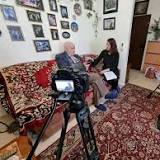Why your retirement planning needs to start now

With the cost of living rising and pensions becoming less predictable, financial planning has never been more critical — or more pressing.
While past generations relied on workplace pensions to provide security in retirement, today’s savers face a starkly different reality. The responsibility of building a comfortable future now rests heavily on individuals, and the clock is ticking to start preparing.
Global investment firm abrdn is stepping up to address this challenge. By combining practical tools, accessible education, and meaningful partnerships, the company is helping to make saving and investing for the future something everyone can achieve.
“More and more responsibility is being pushed onto individuals who don’t yet have the financial education they need,” explains Sarah Moody, abrdn’s Chief Corporate Affairs & Sustainability Officer. “The work we’re doing at abrdn is all about trying to address this.”
Transforming lives through financial education
A cornerstone of abrdn’s mission is ensuring financial literacy from an early age. To support this goal, the company partners with MyBnk, a charity that runs workshops and programmes designed to empower young adults to take control of their finances. These ‘Money House’ workshops have a profound impact at key moments in participants’ lives.
“The one thing that I remember from my experience in 2019 was leaving the course and feeling so empowered to be able to manage my money,” says Tekisha Henry, who attended a MyBnk Money House session as a teenager and now helps train other students. “It helped me know exactly what to expect when getting my first house — which was a very big deal for me at 18 years old.”

One of the MyBnk 'Money House' financial education workshops.

Leon Ward, MyBnk CEO.

Sarah Moody, abrdn’s Chief Corporate Affairs & Sustainability Officer.

Richard Wilson, CEO of interactive investor.

Tekisha Henry, a former student and now trainer at MyBnk.
“Abrdn’s purpose is enabling our clients to be better investors,” says Sarah. “We create funds and products, and have two platforms; one focused on the advised market and the other focused on the direct-to-consumer market, with ‘interactive investor’.
“We work with charity partners like MyBnk and the Just Finance Foundation, who do brilliant work, bringing financial education to children from primary school age all the way through to young adulthood.”
MyBnk’s CEO, Leon Ward, emphasises how starting financial education early can instil habits that last a lifetime. By introducing essential concepts like budgeting, saving, and investing at a young age, these skills can become second nature, setting young people up for long-term financial success.
“Research that we’ve published shows that only two in five young people remember any financial education that they’ve received at school,” Leon explains.
“Money habits can start being developed as young as seven, so whilst the seven-year old isn’t saving into a pension, clearly what you can do is start talking about some of the quite complex financial education terms like compound interest. Through the MyBnk programmes in primary schools, we talk about compound interest rates, and young people at the end of it are chanting the difference between APR and AER and compound interest rates. They’re choosing banks with better interest rates.”
Through abdn’s investment platform, interactive investor – or ii – people can choose to build on those foundations.
“For nearly the last 30 years, interactive investor has been in the business of supporting the investment needs of your ordinary investor”, says ii’s CEO Richard Wilson. “The magic answer to investing is the eighth wonder of the world — and that’s compounding. So, the advice I give anyone is start straight away; do not leave it for later. The return you get starting in your 20s, versus your 30s; versus your 40s… you’re losing that wonderful thing called compounding, which is the one thing that builds wealth for you for the future. So start now.”
Watch our partner film for abrdn – featured as part of ITN Business’ 2024 programme, Future of Investing
A new approach to saving for the future
To get people thinking about starting early, abdn has repurposed an old concept for the modern saver.
“The Savings Ladder Index is the idea that you can put money aside, invest it over time, and it’ll grow,” explains Sarah. “Very similar to the idea we’re very familiar with, which is the property ladder.”
“So, we want to help people get the financial education that they need early, to equip them through life with the right skills and an understanding of personal finance, so they can make really good decisions for their futures.
“What we’d like to see is a real shake-up of financial education in schools and an increase in minimum pension contributions, and the beginning of a really big, important national conversation around the future of savings and investing.”
From empowering children to building long-term wealth strategies, abrdn is proof that financial planning isn’t just possible — it’s essential. And with tools and initiatives that address every stage of the saving journey, everyone, including children, can begin to pave the way for a financially secure future.
Top tips for managing your finances in 2025
With the rise of financial education programmes like those supported by abrdn and MyBnk, now is the perfect time to take control of your financial journey. Here are some top tips for those looking to improve their financial management:
Start saving early
The sooner you start saving, the better. Thanks to the magic of compound interest, saving early can significantly increase your wealth over time. The earlier you begin saving, even small amounts, the more powerful your savings become. Platforms like Moneybox and Plum allow you to round up your purchases and invest the spare change, helping you get into the habit of saving regularly without feeling burdened.
Understand your spending habits
Tracking your spending is essential for managing your finances. Apps like Mint and YNAB (You Need a Budget) can help you monitor where your money is going, set limits, and identify areas to cut back. Understanding your financial habits is the first step toward building a budget that works for you.
Educate yourself on financial terms
Understanding key financial concepts is crucial for making informed decisions. By understanding how interest rates work, you can make smarter decisions about savings accounts, credit cards, and loans.
Start building your credit early
Building a good credit score is essential for your financial future. Having a strong credit score can help you secure better deals on loans, credit cards, and even rental agreements. Begin by opening a credit card or a credit builder account, using it responsibly, and paying off the balance in full each month. This will help establish your credit history early on.
Take advantage of employer pension schemes
If you’re working, make sure you’re taking full advantage of any employer pension schemes. Many employers offer matching contributions, meaning they’ll pay into your pension based on how much you contribute. This is essentially free money for your future, so contribute as much as you can. Even if you’re young, starting to build your pension pot early will give you a significant advantage in retirement planning.
Be smart about debt
Managing debt early on is key to financial stability. Only take on debt that you can afford to repay, and try to avoid high-interest debt like credit card balances. If you’re struggling with existing debt, consider consolidating it or speaking with a financial advisor to create a manageable repayment plan.
Automate your finances
Automating your savings and bill payments ensures that you’re consistently putting money aside without thinking about it. Set up automatic transfers to your savings account each month, and automate bill payments to avoid late fees and ensure your financial obligations are met on time.


 United Kingdom
United Kingdom Argentina
Argentina  Australia
Australia  Austria
Austria  Brazil
Brazil  Canada
Canada  Germany
Germany  Ireland
Ireland  Italy
Italy  Malaysia
Malaysia  Mexico
Mexico  New Zealand
New Zealand  Poland
Poland  South Africa
South Africa  United States
United States 
























